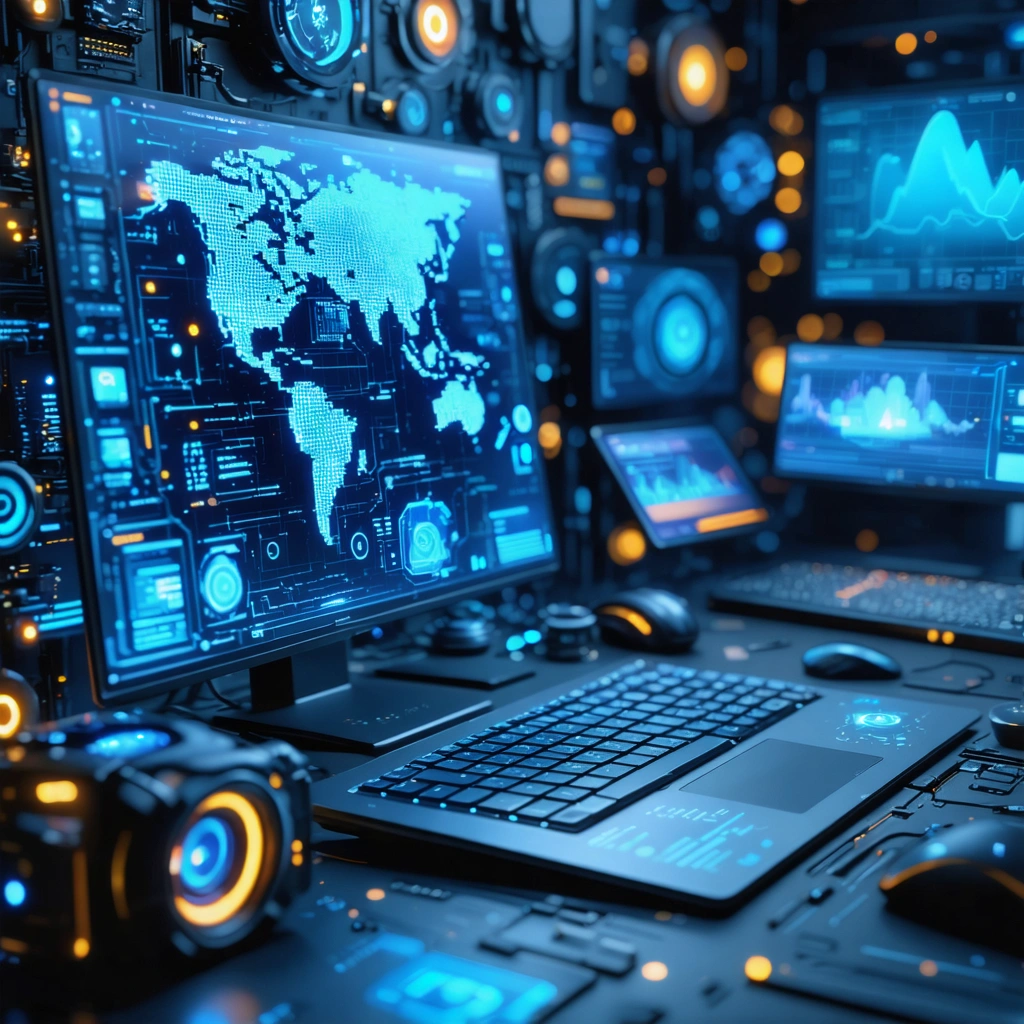
The Dawn of a New Era in Software Development
In recent years, enthusiasts and experts witnessed a transformation in the software industry. Microsoft spearheads a movement where artificial intelligence reshapes the programming landscape. Consequently, experts suggest that by 2030 AI will execute up to 90% of coding tasks. Furthermore, companies such as Anthropic and Meta also contribute to this exciting evolution. In addition, developers and business leaders agree that embracing AI creates opportunities for innovation and efficiency. Moreover, industry pioneers voice optimism as they foresee enhanced collaboration between human insights and machine logic. Transitional words like “furthermore” and “moreover” emphasize progress throughout the article. Thus, the global tech community eagerly anticipates changes that will revolutionize software development and redefine programming norms.
Microsoft’s Bold Vision for 2030
Microsoft announces strategic plans that integrate AI into every phase of software development. The company also asserts that AI-driven coding will soon complement human expertise and accelerate product rollouts. Additionally, Microsoft invests in research and development initiatives that optimize adaptive algorithms. As a result, their approach reflects confidence in technological advancements while maintaining quality and security. Notably, the enterprise ensures that the AI tools focus on improving code accuracy while decreasing repetitive workloads. Consider the following bullet list showcasing the benefits of AI integration:
- Accelerated development cycles
- Enhanced code quality
- Resource optimization
- Proactive error detection
Furthermore, Microsoft’s vision aligns with global trends focused on automation, innovation, and technological resilience.
Insights from Industry Leaders
Other technological giants such as Anthropic and Meta contribute valuable insights into the future of AI automation. They assert that a synergistic approach between human creativity and machine efficiency lays a solid foundation for rapid progress. In particular, these companies emphasize three primary outcomes:
- Reduction in mundane programming tasks
- Increased focus on creative problem-solving
- Boosted overall productivity in technology sectors
Moreover, they invest in deep learning networks and natural language processing capabilities that allow AI systems to generate robust code structures. In parallel, their research teams collaborate with academic institutions and technology hubs, thereby fostering cross-industry innovation. Hence, technological exchanges inspire hope among programmers and hint at a revolutionary future coming soon.
Key Factors Accelerating AI in Software Engineering
Developers experience dramatic shifts in coding practices influenced by AI integration. These changes arise from several factors that bolster productivity and revolutionize development pipelines. Therefore, companies now prioritize the following aspects:
| Year | AI Capability | Impact |
|---|---|---|
| 2025 | Intelligent Code Suggestions | Improved Code Efficiency |
| 2027 | Automated Debugging | Fewer Errors in Releases |
| 2030 | Full-Stack Code Generation | Revolutionized Workflow |
Similarly, increased data availability and advances in computing power continuously foster innovation. Consequently, developers and business decision-makers plan to restructure teams and adapt to new work environments. In this context, AI-driven tools promise not only to streamline coding processes but also inspire creative solutions for complex problems.
The Human Element in a Machine-Driven Future
Although AI transforms programming, human expertise remains indispensable. Developers have long relied on intricate problem-solving skills and creativity that machines cannot fully replicate. Therefore, rather than replacing programmers, AI assists them by automating routine tasks. Additionally, experts predict that hybrid models combining man and machine will define the future of development. Moreover, teams remain actively involved in decision-making processes to ensure ethical considerations and quality standards persist. In a rapidly changing technological environment, continuous learning and adaptive mindsets ensure that human ingenuity complements AI efficiencies perfectly.
Future Prospects and Societal Implications
The anticipated revolution in coding practices presents multifaceted implications. Firstly, industries benefit from accelerated time-to-market as products reach end-users faster. Secondly, the cost-efficiency derived from automation frees up resources for innovation and research. Thirdly, programmers can redirect efforts toward solving complex business challenges. Furthermore, new job roles emerge in AI oversight, system maintenance, and ethical governance. The following numbered list highlights potential societal impacts:
- Enhanced global competitiveness in technology sectors
- Shift towards creative and analytical fields
- Expansion of educational programs focused on AI literacy
Moreover, governments and regulatory bodies plan to implement frameworks that safeguard data and ensure responsible AI use. Consequently, collaborative efforts among public and private sectors become critical to maintaining balance. As a result, society can benefit from AI-driven efficiencies while preserving essential human oversight in the development process.
Challenges and Adaptations on the Horizon
Notwithstanding significant advancements, industry players encounter various challenges during the transition. Firstly, developers must navigate a steep learning curve as new technologies emerge. Secondly, updating legacy systems calls for considerable investment and training. Thirdly, ethical and security issues demand proactive measures. In response, companies host workshops, engage in pilot projects, and collaborate with regulatory authorities to overcome obstacles. Furthermore, continuous research and feedback loops drive software improvements. In this dynamic market, stakeholders must remain agile, evolving with technological trends while mitigating associated risks. Therefore, a proactive mindset emerges as essential for both individuals and organizations facing uncertain yet promising futures.
Conclusion and the Road Ahead
In conclusion, the rise of AI in programming triggers both optimism and preparedness among technology leaders worldwide. Microsoft, Anthropic, and Meta lead initiatives that reshape development practices dramatically. As trends indicate, automated coding emerges as a force that transforms not only software engineering, but also broader economic and social landscapes. Moreover, the integration of human skills with intelligent automation fosters environments ripe for creativity and productivity. Researchers, developers, and industry leaders continuously engage in dialogue, ensuring that technological advancements serve society responsibly. Consequently, the coming decade promises breakthroughs that redefine the coding paradigm and introduce innovative collaborative methodologies. Ultimately, embracing this transformation lays the groundwork for a future marked by efficiency, creativity, and progress.






